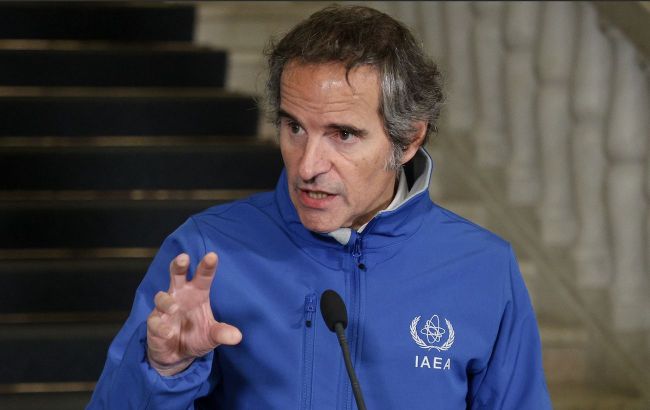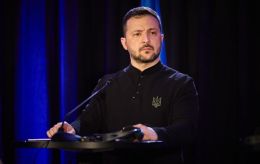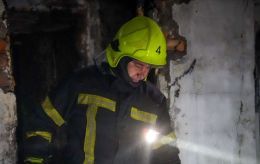Head of IAEA with limited powers seeks to strengthen nuclear control in Iran
 International Atomic Energy Agency (IAEA) chief Rafael Grossi (photo: Getty Images)
International Atomic Energy Agency (IAEA) chief Rafael Grossi (photo: Getty Images)
On Monday, the head of the UN nuclear agency, Rafael Grossi, arrived in Iran, hoping to strengthen the IAEA's supervision of Tehran's nuclear activities, but analysts and diplomats say he has limited leverage and should beware of empty promises, reports Reuters.
Grossi is expected to meet with Iranian officials, including chief nuclear negotiator Ali Bagheri Kani and Foreign Minister Hossein Amirabdollahian.
Last month, Grossi expressed concerns about the insufficient level of checks in Iran. "Given the depth and breadth of the programme, we should be having additional monitoring capabilities," he said.
Cancellation of the agreement
Then-US President Donald Trump's decision in 2018 to ditch a landmark deal between Iran and major powers that exchanged nuclear restrictions for sanctions relief caused that accord to unravel. Iran has since accelerated its uranium enrichment and reduced cooperation with the International Atomic Energy Agency.
Iran is enriching uranium to up to 60% purity, close to the around 90% of weapons grade. If that material were enriched further, it would suffice for two nuclear weapons, according to an official IAEA yardstick.
Limited capabilities of the IAEA
Iran has also limited the IAEA's ability to do its job properly. It faces an array of problems, from Tehran's continued failure to explain uranium traces found at undeclared sites to its barring of almost all the IAEA's top enrichment experts.
When he returned from his latest trip to Iran in March 2023, Grossi believed he had achieved significant progress from Tehran, laid out in the Joint Statement.
The result was insufficient, as evidenced by IAEA reports to member states.
Grossi hoped that this statement would lead to the reinstallation of surveillance cameras and other monitoring equipment seized by Iran in 2022. Instead, only some of the cameras were reinstalled.
The IAEA has now lost track of parts of Iran's nuclear programme of which the deal gave it oversight, such as the number of centrifuges - machines that enrich uranium - Iran possesses. The IAEA describes this in its reports as losing continuity of knowledge.
That has raised fears Tehran could set up a secret enrichment site, although there is no indication of one, diplomats say.
Iran's strategy
"The IAEA is understandably more concerned about the invisible, rather than the visible, part of Iran's nuclear programme," said Ali Vaez of the International Crisis Group.
Speaking about Grossi's visit, the head of Iran's nuclear government Mohammad Eslami said on May 1 that Tehran hopes for enhanced cooperation with the IAEA.
According to Reuters, the reluctance of US President Joe Biden's administration to seriously confront Iran at the IAEA's Board of Governors meeting of 35 countries, which is set to reconvene in a month, has raised doubts about Grossi's leverage.
However, agency sources believe that Grossi will not enter negotiations without a clear understanding of what Iran is willing to agree to.
"Everyone knows this is a game Iran plays ahead of the Board of Governors meetings, where it routinely overpromises in order to avoid a censure and then underdelivers," analyst Eric Brewer of the Nuclear Threat Initiative said.
In February, The Wall Street Journal reported that Iran had reduced its stockpile of nuclear material close to weapons-grade, even as it continued to expand its nuclear program. This unexpected move could ease tensions in relations with the US.

